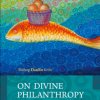Žiri smatra da zbirka Jelene Rosić nudi originalno narativno uobličenje iskustva susreta s Drugim, koje je uvek i susret sa sopstvenim dubinama i ponorima. Te veze spoljašnjeg i unutrašnjeg, prošlog i budućeg, u pojedincu i svetu koji ga okružuje, najčešće nije lako dokučiti i osvestiti. Suptilne spone, koje nenametljivo funkcionišu među pričama ove zbirke, kao da to potvrđuju.
U užem izboru za nagradu našli su se i romani Svetislava Basare Dugovečnost (Laguna) i Branka Anđića „Play back"(Agora), a na završnoj sednici rasprsavljano je o Basarinom romanu i o knjizi priča Jelene Rosić.
Nakon zanimljive rasprave članovi žirija su se jednoglasno opredelili da ovogodišnji laureat bude Jelena Rosić.
Inače, žiri je ove godine razmatrao preko 70 prispelih romana i zbirki priča.
Nagradu „Stevan Sremac" dodeljuje Niški kulturni centar, a finansira Grad Niš i Ministarstvo kulture Republike Srbije. Nagradu čini plaketa i novčani iznos.
Nagrada će dobitnici biti uručena u maju, tokom trajanja manifestacije „Dani Stevana Sremca", koja se tradicionalno održava u Nišu.
From Radio City





